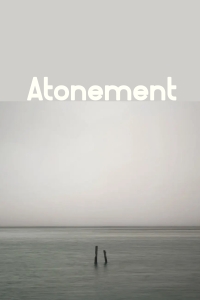
When it was told to the Pandava brethren that their camp had been raided in darkness by the bloodthirsty Aswatthaman, Yudhishthira exclaimed: “Alas! Sorrow upon sorrow crowds upon us, and now the greatest sorrow of all has fallen. Draupadi mourns the death of her brother and her five sons, and I fear she will perish with grief.”
Draupadi came before her husbands and, weeping bitterly, said: “For thirteen cruel years, you have endured shame and exile so that your children might prosper. But now that they are all slain, can you desire to have power and kingdom?”
Said Krishna: “O daughter of a rajah, is your grief so great as is Pritha’s and Gandhari’s, and as great as those who lament the loss or their husbands on the battlefield? You have less cause than others to wail now.”
Draupadi was soothed somewhat, but she turned to Bhima and said: “If you will not bring me the head of Aswatthaman, I will never again look upon your face.”
Said Yudhishthira: “Aswatthaman is a Brahman, and Vishnu, the greatest of the gods, will punish him if he has done wrong. If we slew him now, O Draupadi, your sons and your brother and your sire would not be restored to you.”
Draupadi said: “So be it. But Aswatthaman has a great jewel which gleams in darkness. Let it be taken from him, for it is as dear to him as his life.”
Then Arjuna pursued Aswatthaman and found him and returned with the jewel.
To the battlefield came blind old Dhritarashtra, mourning the death of his hundred sons. And with the weeping maharajah were Queen Gandhari and the wives of the Kaurava princes, who sorrowed aloud. Wives wept for their husbands, their children wailed beside them, and mothers moaned for their sons. Bitter was the anguish of tender-hearted women, and the air was filled with wailing on that blood-red plain of Kuru-kshetra.
When Queen Gandhari beheld the Pandavas, she cried out: “The smell of Duryodhana is upon you all.”
Now Dhritarashtra plotted in his weak mind to crush the head of Bhima, the slayer of Duryodhana. When he embraced Yudhishthira, he said: “Where is Bhima?” and they placed an image of the strong Pandava before him. Dhritarashtra put forth his arms, and he crushed the image in his embrace and fell back fainting. Then he wailed: “Alas! Bhima was like a son to me. Although I have slain him, the dead cannot return.”
Well pleased was the maharajah when he was told that Bhima still lived. He embraced his son’s slayer tenderly and with forgiveness, saying: “I have no children now save the sons of Pandu, my brother.”
Pritha rejoiced to meet her five sons, and she embraced them one by one. Then she went towards the sorrowing Draupadi, who fainted in her arms. After that, they wept together for the dead.
The slain rajahs and princes’ bodies were collected together, wrapped in perfumed linen and laid each upon a funeral pyre and burned. The first pyre which was kindled was that of Duryodhana. The Pandavas mourned for their kinsmen. Then they bathed in the holy Ganges and took up water and sprinkled it in the name of each dead hero. Yudhishthira poured out the oblation for Karna, his brother, and he gave great gifts to his widows and his children. After that, all the remaining bodies of the slain were burned on the battlefield.
Yudhishthira was proclaimed rajah in the city of Hastinapur, and he wore the great jewel in his crown. A great sacrifice was offered up, and Dhaumya, the family priest of the Pandavas, poured the Homa offering to the gods on the sacred fire. Yudhishthira and Draupadi were anointed with holy water.
In the days that followed, Yudhishthira lamented over the carnage of the great war, nor could he be comforted. At length, Vyasa, the sage, appeared before him and advised that he perform the horse sacrifice to atone for his sins.
Then the search was made for a moon-white horse with yellowtail and one black ear, and when it was found, a plate of gold, inscribed with the name of Yudhishthira, was tied upon its forehead. After that, the horse was let loose and was allowed to wander wheresoever it desired. A great army, which was led by Arjuna, followed the horse.
In those days, it was the custom that when the sacred horse entered a raj, that raj was proclaimed to be subject to the king who performed the ceremony. And if any ruler detained the horse, he was compelled to fight with the army which followed the wandering animal. Should he be overcome in battle, the opposing rajah immediately joined forces with the conquerors and followed the horse from kingdom to kingdom. For a whole year, the animal was allowed to wander thus.
The horse was let loose on the night of full moon in the month of Choitro.
Arjuna met with many adventures. He fought against a rajah and the son of a rajah, who had a thousand wives in the country of Malwa, and defeated them. But Agni, who had married a daughter of the rajah, came to rescue his kin. He fought against Arjuna with fire, but Arjuna shot celestial arrows, which produced water. Then the god made peace, and the rajah who had detained the horse went away with Arjuna. After that, the horse came to a rock which was the girl-wife of a Rishi who had been thus transformed because of her wickedness. “So will you remain,” her husband had said, “until Yudhishthira performs the Aswa-medha ceremony.” The horse was unable to leave the rock. Then Arjuna touched the stone, which immediately became a woman, and the horse was set free.
In time the horse entered the land of Amazons. The queen detained it and came forth with her women warriors to fight against Arjuna, who, however, made peace with them and went upon his way. After that, the holy steed reached a strange country where men and women and horses and cows and goats grew upon mighty trees like fruit and came to maturity and died each day. The rajah came against Arjuna but was defeated. Then all the army fled to the sea islands, for they were Daityas, and Arjuna plundered their dwellings and obtained much treasure.
Once the horse entered a pond and was cursed by the goddess Parvati, it became a mare; it entered another pond and became a lion, owing to a Brahman’s spell.
In the kingdom of Manipura, the horse was seized, and soldiers armed with fire weapons were ready to fight against the Pandavas and their allies. But when the rajah, whose name was Babhru-váhana, discovered that the horse bore the name of Yudhishthira, he said: “Arjuna is my sire,” and he went forth and made obeisance, and put his head under the foot of the Pandava hero. But Arjuna spurned him, saying: “If I were your sire, you would have no fear of me.”
Then the rajah challenged Arjuna to battle and was victorious on that day. He took all the great men prisoners, and he severed Arjuna’s head from his body with a crescent-bladed arrow. The rajah’s mother, Chitrangada, was stricken with sorrow, as was also Ulupi, the daughter of Vasuki, the king of serpents, who had borne a son to Arjuna. But Ulupi remembered that her sire possessed a magic jewel that had the power to restore a dead man to life, and she sent the rajah of Manipura to obtain it from the underworld. But the Nagas refused to give up the jewel. At that point, Arjuna’s mighty son fought against them with arrows transformed into peacocks, and the peacocks devoured the serpents. Then the Naga king delivered the magic jewel, and the rajah returned with it. He touched the body of Arjuna with the jewel, and the hero came to life again, and all his wounds were healed. When he departed from Manipura city, the rajah, his son, accompanied him.
So from kingdom to kingdom, the horse wandered while the army followed until a year had expired. Then it returned to Hastinapur.
Yudhishthira had meantime lived a life of purity and self-restraint. Each night he lay upon the ground and always slept within the city. Beside him lay Draupadi, and a naked sword was ever betwixt them.
Great were the rejoicings of the people when the horse came back: they made glad holiday and went forth to welcome the army with gifts of fine raiment and jewels and flowers. Money was scattered in the streets, and the poor were made happy, thus relieved generously in their need.
Yudhishthira embraced Arjuna, kissed him and wept tears of gladness, and welcomed Arjuna’s son, Babhru-váhana, Rajah of Manipura, and the other rajahs who had followed the sacred horse.
Twelve days after the return of Arjuna, and on the day when Magha’s full moon marked the close of the winter season, the people assembled in great multitudes from far and near to share Yudhishthira’s generous hospitality and witness the Aswa-medha ceremony, which was held upon a green and level portion of consecrated ground. Stately pavilions, glittering with jewels and gold, had been erected for the royal guests, and there were humbler places for the Brahmans. In thrones of gold sat Maharajah Dhritarashtra and Rajah Yudhishthira, and the other rajahs had thrones of sandalwood and gold. The royal ladies were ranged together in their appointed places. Wise Vyasa was there, and he directed the ceremony. And Krishna, the holy one, was there also.
When all the guests were assembled, Yudhishthira and Draupadi bathed together in the sacred waters of the Ganges. Then a portion of ground was measured out, and Yudhishthira ploughed it with a golden plough. Draupadi followed him and sowed the seeds of every kind in the kingdom while all the women and the Brahmans chanted holy mantras. Then a golden altar was erected with four broad layers of golden bricks and stakes of sacred wood from the forest and Himalaya. It was canopied and winged with gold-brocaded silk.
Then eight pits were dug for Homa of milk and butter to be made ready for the sacrificial fire, and in skins were wrapped up portions of every kind of vegetable and healing herb which grew in the kingdom. These were placed in the Homa pits.
On the ground, there were numerous sacrificial stakes, to which were tied countless animals—bulls and buffaloes and steeds, wild beasts from forest and mountain and cave, birds of every kind, fishes from river and lake, and even insects.
The priests offered up animals in sacrifice to each celestial power, and the feasting was beheld by sacred beings. The Gandharvas sang, and the Apsaras, whom the Gandharvas wooed, danced like sunbeams on the grass. Messengers of the gods were also gathered there, and Vyasa and his disciples chanted mantras to celestial music. The people lifted up their voices at the sound of the rain drum and the blast of the rain trumpet. Then bright was the lustre of Yudhishthira’s fame.
When all the kings and royal ladies and sages took their places to be blessed by the horse sacrifice, Yudhishthira sat on his throne, and in his hand, he held the horn of a stag.
Vyasa sent four-and-sixty rajahs to draw water from the holy Ganges with their wives. Many musicians went with them, beating drums and blowing trumpets and playing sweet instruments, and girls danced in front, going and returning. And all the rajahs and their wives were given splendid raiment by Yudhishthira, and necklaces of jewels also, and he put betelnut in their mouths one by one. The Brahmans were gifted much gold and many jewels, elephants, horses, and coins, and they were well pleased.
Yudhishthira then sat naked in his throne, and each one who had drawn holy water poured a quantity over his head, and they poured what remained over the head of the sacred white horse.
Nákula held the horse’s head and said: “The horse speaks.”
Those about him asked in loud voices: “What doth the horse reveal?”
Said Nákula: “Thus speaks the horse—‘In other such ceremonies the horse which is sacrificed departs unto Swarga, but I shall rise far above Swarga because Krishna is here.”
Then Dhaumya, having washed the horse, gave a scimitar to Bhima with which to strike off the head at a single blow. But ere this was done, Dhaumya pressed an ear of the holy animal, and milk flowed forth. Then he said to Bhima: “Pure indeed is the horse; verily the gods will accept the sacrifice. Strike now, O strong one.”
Bhima raised the scimitar and severed the head, which immediately ascended to heaven and vanished from before the eyes of all. Great was the wonder and the joy of the assembled multitude.
Krishna and other rajahs and sages then cut open the horse’s body, from which a bright light issued forth. They found that the animal was pure, and Krishna said to Yudhishthira: “This, your sacrifice, is acceptable to Vishnu.”
Draupadi was made Queen of the Sacrifice, and mantras were chanted. She was adored and given rich offerings because of her virtue and wisdom.
The body of the slain steed was divided, and the flesh gave forth the odour of camphor. Priests lifted portions in their ladles and placed these on the sacrificial fire, and they made Soma. And Rajah Yudhishthira and all his brethren stood in the sin-cleansing smoke and breathed its fragrance.
Dhaumya cried out as he laid a piece of flesh on the altar fire: “O Indra, accept you this flesh which has turned to camphor.”
When he uttered these words, Indra, accompanied by many gods, appeared before the people, who obeyed with fear and secret joy. Indra took from Vyasa portions of the flesh and gave these to each god. Then he vanished from sight with all his companions.
Vyasa blessed Yudhishthira, and Krishna embraced him.
Said Krishna: “Your fame will endure forever.”
Yudhishthira made answer: “To you do I owe all these blessings.”
After that, Krishna and the rajahs poured holy water over the heads of Yudhishthira and Draupadi.
All the fragments of the herbs provided for Homa were then ground into powder. And Yudhishthira gave balls of the powder to each present so that they might eat the sacred herbs and share in the blessings of the Aswa-medha. He ate his own portion last of all. The fragments of the offerings which remained were burnt on the altar.
Then Pritha and all the maidens made merry while the musicians played gladsome airs.
Yudhishthira distributed more gifts. To Vyasa, he assigned an estate and bestowed upon the Brahmans, who officiated many animals and pearls and slaves. He gave war elephants and steeds and money to the rajahs and the rajahs’ wives bridal-night gifts of raiment and jewels and gold.
Bhima feasted all the Brahmans, and Yudhishthira wept as he bade farewell to Krishna, his friend in peace and in war, who departed in his chariot to sea-washed Dwaraka.
There was prosperity in the kingdom under Yudhishthira’s wise and just government. But blind old Dhritarashtra never ceased to mourn the death of Duryodhana, his firstborn. At length, he retired to live in a humble dwelling in the jungle. Queen Gandhari, Pritha, the Pandavas, and Vidura, and others who were of great age with him.
This story was first written by Donald Alexander Mackenzie. It has been adapted for Readomania by our editorial team.
About the Author







Comments